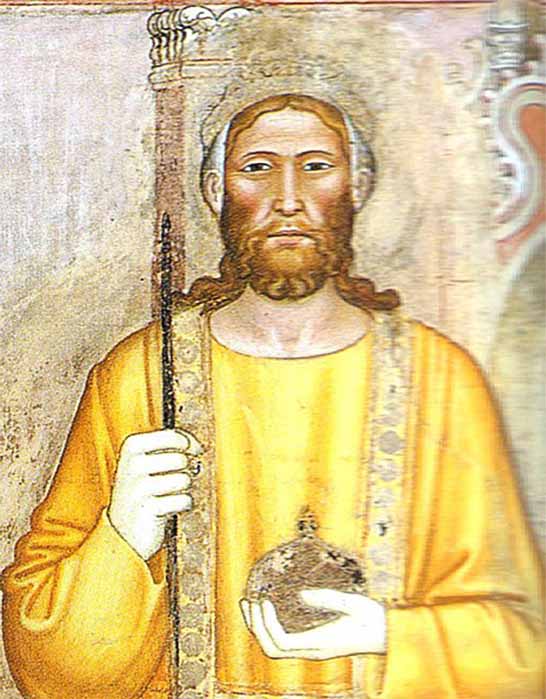
Love and Intrigue: Ruins of King Pierre I and Joanna l’Aleman's Forbidden Romance
In the twilight of the medieval period, amidst the clash of crusades and kingdoms, unfolds the poignant saga of King Pierre I de Lusignan and his courtier, Joanna l’Aleman—a forbidden love story that transcends the pages of mere chronicles to touch upon various facets of the human experience - adoration, desire, power, fury, and intrigue.
The primary source for this affair is the work 'Recital concerning the sweet land of Cyprus entitled 'Chronicle' by Leontios Macheras. It was written in the Cypriot Greek dialect sometime between 1426 and 1432, approximately 50-60 years after the events in question. Even though he served in the court and had direct access to many original documents and surviving witnesses he could not write freely since he was employed by the very same family that was directly responsible for their murder.
The House of Lusignan, with its origins in Lusignan, Poitou, western France, is renowned for its lineage tracing back to the 10th century. Active participants in the crusades, the family, under the leadership of Guy de Lusignan, rose to prominence by securing the throne of Cyprus in 1192, a position they retained until 1489.
Pierre I de Lusignan (October 9, 1328 - January 17, 1369, also known as Peter I of Cyprus) became the tenth Lusignan ruler of Cyprus, following the abdication of his father, Hugues/Hugh IV, on November 24, 1358, Pierre assumed the titles of King of Cyprus and titular King of Jerusalem. His formal coronation in Nicosia in 1359, followed by a subsequent crowning in Famagusta as King of Jerusalem the following year, marked pivotal moments in his reign.

Pierre I de Lusignan. (Public domain)
The historiography surrounding Pierre I is rich, with numerous accounts documenting his endeavors. Notable among these are his diplomatic missions across Europe from 1362 to 1365, ostensibly aimed at garnering financial and military support for a crusade, as well as his strategic engagements in raiding enemy territories adjacent to Cyprus. Particularly noteworthy is his military attack on Alexandria in 1365. These exploits have contributed to the perception of Pierre's reign as resembling an adventurous narrative, a characterization that gained traction in Western Europe following his untimely demise in January 1369. This romanticized depiction continues to shape contemporary interpretations of his rule.
Pierre I and Joanna I’Aleman
To date, scholarly focus has largely overlooked a significant aspect of Pierre I's life, one that reveals a more human dimension to his character. Beyond his affinity for adventure in the age of chivalry, Pierre harbored a profound affection for one of his courtiers, Joanna l’Aleman. It appears that this romantic attachment exerted a notable influence on many of his decisions and actions throughout his reign.
Pierre's upbringing occurred within a Cyprus characterized by peace and prosperity. His father, Hugues IV (1294-1359), was known for his devotion not only to the church but also to philosophical and literary pursuits, as well as hunting, rather than martial endeavors. This disposition likely earned him favor among his subjects, who had long suffered from the ravages of war. During Hugues's reign the realm enjoyed a period of tranquility.
The court of Hugues IV Lusignan emerged as a significant cultural hub within the Levant, attracting intellectuals from Western Europe, Byzantium, and the East alike.




